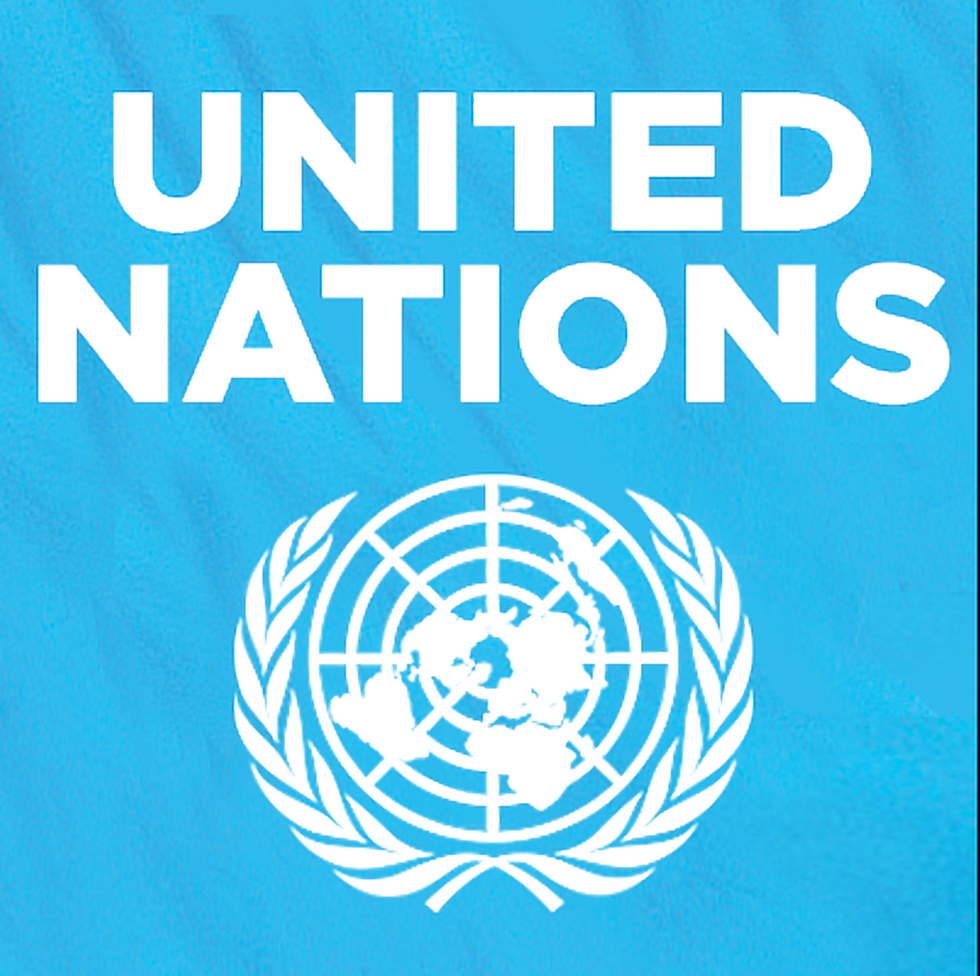Simple Guide to UN Income and U.S. Taxes

I heard my UN income should be tax free, is that true?
Generally, salary, grants and allowances paid by the UN are exempt from income tax. For US citizens, this is done indirectly, with income tax paid, and subsequently reimbursed by the UN to ensure that there is income parity between staff members of similar salary but different nationalities. The UN also provide a “post adjustment” multiplier taking into account cost of living and currency fluctuations to ensure similar purchasing power in every duty station.
Summary table of how UN income and U.S. taxes work
|
Taxpayer is |
Has to pay tax? |
Tax reimbursed? |
Self Employment Tax |
|
US Citizen |
Yes, on all income |
Reimbursed tax on UN income only |
UN income earned outside of the U.S. exempt from tax |
|
Green Card Holder |
Yes, on all income |
Reimbursed tax on UN income only |
UN income earned outside of the U.S. exempt from tax |
|
Foreign Citizen who spends less than 183 days a year in the U.S. |
No U.S. tax paid. Days of presence in the United States are not counted for “exempt individuals.”
Exempt individuals include foreign individuals who are present in the United States by reason of his/her full-time employment with the United Nations. Members of the “immediate family” of a full-time employee of an international organization are also considered exempt individuals for purposes of the Substantial Presence Test. Immediate family members include the eligible employee’s spouse and unmarried children under age 21 provided that their visa statuses are dependent upon the employee’s visa status. |
||
|
Foreign Citizen who spends more than 183 days a year in the U.S. |
|||
What is the chief reason for the United Nations tax reimbursement system?
The U.S. government does not exempt United Nations earnings from taxes. There is a reimbursement system in place to help staff members of the United Nations who are subject to taxes stay in the same financial position they would otherwise have been if their income weren’t taxed. Thus it is not intended to provide benefits, or disadvantages, to staff members relative to other UN staff members that do not have to pay tax on their UN emoluments to member nations of the UN.
Who has to pay taxes for UN Earnings?
All U.S. citizens, as well as permanent residents, who signed Form 508 - Waiver of rights, privileges, exemptions and immunities must pay U.S. income tax on their UN earnings.
Additionally, U.S. citizens who are working for the United Nations within the U.S. must pay self employment taxes for the UN earnings. The UN will reimburse any staff members required to pay U.S. income taxes on their UN earnings, plus 6.2% of the 12.4% tax for Social Security, as well as 1.45% of the 2.9% tax for Medicare, essentially making up for the self employment tax paid by the U.S. citizens.
Who must pay tax on self employment?
U.S. tax law requires all U.S. citizens who work for the United Nations within the U.S. to pay appropriate self employment taxes on all of their UN earnings. Any U.S. citizen who works for the UN abroad, but spends time on duty within the U.S. must also pay the tax on their earnings during the time they worked within the U.S..
As of 2016, the tax rate for Social Security is set at 12.4% of the applicable wage base, in addition to 1.45% for Medicare. The maximum wage base in 2016 was USD 118,500. In addition, there is additional tax for Medicare at a 0.9% rate for anyone who earns more than USD 250,000 (married filing jointly), USD 125,000 (married filing separately), and USD 200,000 (other taxpayers). Normally, the UN reimburses half of any self employment taxes that are due on UN earnings on tax schedule SE - the taxpayer must pay the remainder. The additional 0.9% Medicare tax, if required, is not reimbursed and must be paid by employees.
What are the deadlines to receive reimbursement?
Tax reimbursement requests to the UN must be submitted (for 2015) by March 1, 2016 by staff working in the U.S., and by April 1, 2016 by staff working elsewhere. These requests must be received by these dates so that there is enough time to process the reimbursements prior to the tax return filing deadlines with the government.
U.S. tax filing deadlines for the 2016 tax year are April 15, 2017 for anyone within the U.S. and June 15, 2017 for anyone overseas. Any requests for reimbursement of taxes sent after the deadline get handled in the order they are received, although a limit of one year applies for filing the tax reimbursement claim.
How are reimbursements calculated by the UN?
Reimbursements of income tax are made on the tax due to UN emoluments and salary. The tax is calculated by subtracting (a) what the tax would be if the UN income were not included from (b) the actual tax due for that year according to the tax returns that include the UN income. Both of these numbers are derived using actual income, adjustments, losses, exemptions, and deductions that are claimed on the tax returns. Any deduction or exemption resulting from including UN earnings in the alternative minimum tax income is considered for calculating reimbursement of the alternative minimum tax.
Estimated taxes
There is no automatic system that withholds taxes from the United Nations income. Employees who owe state, federal, or municipal taxes must file an estimated tax declaration for the year by April 15th of that same year. It must include emoluments and salary that the taxpayer expects to receive from their United Nations work. In most cases, taxpayers must pay estimated taxes as follows to avoid penalties for underpayment on estimated taxes. These payments are due in four installments, and are the lowest of:
- All tax liability for the previous tax year (which includes any self employment taxes)
- 90% of estimated tax liability for the current year (which includes any self employment taxes)
These payments are due on April 15th, June 15th, September 15th of the current tax year, and January 15th of the following tax year.
Tax advances for the state of New York and Federal taxes are paid by the UN directly to New York and to IRS, and are credited to the individual account of the taxpayer as estimated payments of tax. If there is an exceptional case that prevents electronic payments from being possible, checks payable to a tax authority can be issued.
If advances are necessary for Maryland, Virginia, or Washington DC estimated taxes are paid by check made out to the taxpayer. They must either endorse them and forward them immediately to the proper state tax department, or deposit them into their own bank account, then issue a personal check for the taxes.
Taxpayers must include any self employment taxes on the estimated tax form, and, if necessary, add estimates of other taxable income derived from other sources besides the UN. They must then also pay estimated tax on these amounts.
Note that for high income taxpayers a Net Investment Income Tax (NIIT) may also be due, and is the responsibility of the taxpayer to address. For additional details, see https://www.taxesforexpats.com/articles/investments/information-about-net-investment-income-tax-niit.html.
Taxable earnings statement
United States taxpayers working the the United Nations will receive taxable earnings statements, which are sent to the email address on record with the UN. If they do not receive their statement via email before February 5th, staff members must speak with the Tax Unit.
What to do with UN tax checks made out to a Tax Authority
If an employee receives a UN tax check payable to a tax authority, they should forward it to the tax authority. Under no circumstances should a check made out to a tax authority be cashed or deposited into the taxpayer’s own bank accounts.
What if a taxpayer pays their balance due prior to receiving a UN tax check?
If an employee pays their tax balance prior to receiving the UN tax check made payable to a tax authority, they should return the check to the UN Tax Unit along with evidence that they paid their tax (e.g., copies of their cancelled personal checks). Then, the Income Tax Unit reissues the UN tax check payable to the employee. Sometimes, tax reimbursement checks will be made payable directly to the employee if the amount they paid into the Internal Revenue Service is greater than any total tax on their outside income. The only tax checks that should be deposited into the taxpayer’s personal account or cashed are those issued in their name, and with them as the only payee.
Who pays interest and penalties imposed by taxing authorities?
Individual taxpayers hold sole responsibility for submitting correct, timely, and complete tax returns. So, the UN won’t reimburse employees for any interest or penalties imposed by a tax authority on UN earnings unless:
- Any delays are caused by the UN; or,
- Interest and penalties result from written instructions from the UN.
In certain cases, employees stationed outside of the U.S. may be reimbursed interest and penalties. Under no circumstances will the UN pay penalties for late filing. Therefore, employees are advised to ensure they file for extensions when appropriate, prior to the filing deadline.
What does the UN Tax Unit do if an error is made on a tax return?
If, while processing an employee’s request for a reimbursement, the Tax Unit finds an error, they will issue a written correction notice noting the corrections that should be made on the taxpayer’s tax return. Staff members must certify and acknowledge they’ve made the changes to their tax forms, and return a certified copy of the correction notification along with corrected copies of the tax forms. It is important, however, not to rely on errors being detected by the Tax Unit. The taxpayer remains solely responsible for the correct filing of tax returns with relevant tax authorities.
Note also, that after completing the UN form number F.243, the staff member is authorizing the United States IRS to send the dates and amounts of their estimated taxes, along with other relevant tax information, to the UN for the tax years the UN might request the information for. This information is only used to make sure that the employee submitting copies of their tax return forms for Tax Unit review also submits identical returns to the Internal Revenue Service. This doesn’t imply the tax return is correct or that it has been accepted after submission to the IRS. Neither does it indicate any obligation on the part of the UN to verify that claims sent to the UN Tax Unit are considered correct by the tax authority.
When can married employees file separately?
Usually, if a staff member who is married is not getting dependency benefits on behalf of their spouse, they can choose to file taxes separately. If they claim itemized deductions which are under the amount of the standard tax deduction, the UN calculates their reimbursement by using the amount for the standard tax deduction. If the staff member chooses to file separately while they are receiving any dependency benefits, the UN income tax reimbursement is calculated assuming they are filing their tax return jointly with their spouse.
Must dependents be claimed when dependency benefits are received from the UN?
Staff members who have received UN dependency benefits on behalf of their relatives, children, or spouse living within the U.S. must claim the exemptions for them, or else provide proper written explanation of the reason they have not done so.
Should copies of tax returns be submitted to the UN Tax Unit when a taxpayer is abroad and doesn’t owe federal tax?
It is recommended that staff members send photocopies of their tax returns to the UN Tax Unit, regardless of whether or not they qualify for the FEIE (foreign earned income exclusion) or do not have tax liability. This provides a complete record for their tax file. It also makes it easier in the case of any future tax return amendment to submit that amended tax return for reimbursement of taxes.
Can I have the Tax Unit do my taxes or give advice?
Employees of the UN Tax Unit cannot provide any tax advice for UN staff members, nor can they assist the taxpayer in preparing their tax returns. The taxpayer remains solely responsible for submitting correct and proper tax returns with tax authorities, and shouldn’t rely on advice or error detection from the Tax Unit. The UN is not able to provide assistance or advice on tax issues except as it relates to how taxable UN earnings that are included on the taxable earnings statement are treated. Neither are they able to contact any tax authority on behalf of an employee.



